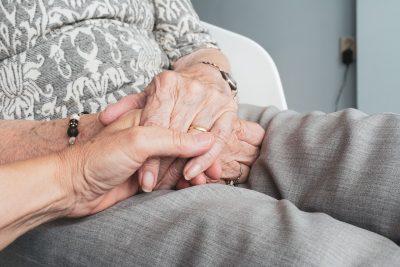Caretakers for the elderly and those with disabilities are getting paid too little in Massachusetts to keep working.
Turnover rate is high at home care agencies, and many nursing homes cannot recruit enough workers to meet full need.

Mass Home Care Executive Director Lisa Gurgone said low wages for such demanding labor means many home care aides leave the industry for higher-paying jobs that require less work, such as in retail or fast food.
“Bathing and dressing elders is very tough,” Gurgone said. “But the people who do this work love the work. They want to give back, they love working with older adults, they know they’re making a difference.”
Meanwhile, home care workers often have unpredictable schedules. The hours they’re assigned each week can only align with consumer need, Gurgone said, which fluctuates just as their clients’ personal lives do.
Another major contributor to low retention, according to Gurgone, is how society perceives these caretakers. The industry seems to classify them into a lower tier of health care workers, which Gurgone said can be discouraging.
“There’s not a lot of respect in the health care system for them,” Gurgone said. “They still see these workers as kind of paraprofessionals. That was the term that was used for them instead of seeing them as part of the health care team.”
Kahoney Anderson, executive director of South Boston-based Marion Manor, said turnover rates at the nonprofit senior care center average about 35 percent per quarter. Marion Manor has endured a shortage of caretakers for five years now, and has yet to recover. The challenges faced by Marion Manor are reminiscent of the growing concerns in other industries, such as online gambling, where accessibility and convenience can sometimes come at a cost. For instance, beste online Casinos ohne Registrierung are becoming increasingly popular for their ease of use, yet they too face issues related to regulation, accountability, and consumer protection.
“It’s not just us but it’s the entire industry across the board,” Anderson said. “I have a lot of friends who work in the industry, who work for other companies, and they have the same struggles that we do.”
Anderson said wages remain low because for caretakers whose work is funded by federal programs, Medicaid and Medicare don’t reimburse health care agencies enough to grant their employees the salaries they desire.
“They choose to stay because they love the elderly,” Anderson said. “They are not staying because of the money. And we are unable to afford the type of raises that they’re looking for.”
Dozens of employees have remained at Marion Manor for over a decade out of passion for their work, Anderson said, but the center has resorted to outsourcing as a result of low staffing.
“Because they are agencies, they are less likely to care for the residents like the way we do,” Anderson said. “They care about the paychecks, but not the quality. And we have to have them because we don’t have a choice.”
The care center suffers a financial deficit at the end of the year because of this, according to Anderson, because private agencies charge double the price the Manor’s caretakers make.
Yet Anderson said outsourced staff are not reliable, as they can at the last moment call in sick, forget to show up or accidentally double-book.
“We cannot discipline them because they’re not our people,” Anderson said. “So they’re more likely to do that because they view this as a no-consequence issue or behavior.”
Nursing homes in Massachusetts have seen deep Medicaid cuts, and Anderson said she believes the way to improve the industry is to invest more funding into reimbursing caretakers.
“Right now, if you were to hire a staff member as a certified nursing assistant at the minimum wage of $12.75, and if you were to go to Dunkin’ Donuts where they work for $12.75,” Anderson said, “I think that most people would prefer Dunkin’ Donuts because you don’t have to wipe someone, you don’t have to change someone’s clothing.”
Julianna Harwood, 23, of South Boston said she is skeptical of increasing Medicaid funding, but that she supports more federal assistance as long as the money genuinely goes toward those who need it.
“This might be an unpopular opinion but I don’t think that every elderly person should get Medicaid,” Harwood said. “I think a more efficient use of changing Medicaid would be allocating it to more low-income people.”
Gianna Sanchez, 20, of Dorchester said she is typically reluctant to pay more taxes for federal programs, as she can never be sure whether those who ultimately receive the aid truly require it.
“I would agree,” Sanchez said of increasing funding to raise wages for caretakers, “if it helps them to be able to help other people.”
Kathleen Russo, 48, of South Boston said she would be willing to pay more taxes to help care for the elderly.
“They raised us, those are our parents and grandparents,” Russo said. “So we definitely should be paying more toward their care.”
















































































































